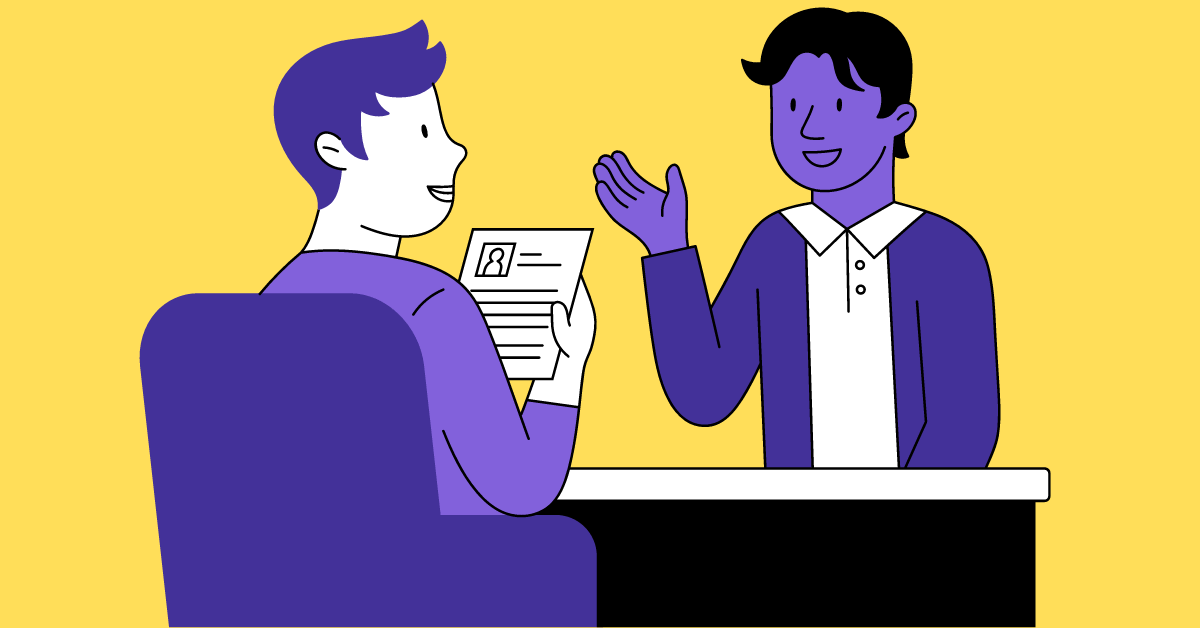Whenever you go for an interview, you need to be prepared. And one of the best ways to be prepared is to know what type of interview you are going in for as that will tell you what kind of questions you will get.
Here's a list of the main interview types to help you prepare for your next interview.
- Behavioral Interviews
- Case Interviews
- Situational Interviews
- Screening Interviews
- Interviews based on a Structure
- Panel interview
- Group interview
- Mock interview
Behavioural Interviews
Interviewers want to know that you have the skills and experience that you mention in your resume when you go for an interview. But just asking someone what skills they have doesn’t give them an idea of your skill. A behavioral interview is great as it asks you about your performance in the past as a predictor for your performance in the future. Behavioral questions are often very helpful to assess HR executives. Check out other common questions used to interview HR professionals as well.
Common phrases for behavioral interview questions are: Tell me about a time when, Have you ever experienced etc.
Case Interviews
Case interviews often involve a task or situation. These interviews test your problem-solving skills by giving you a puzzle or situation and asking you to come up with a solution. The aim of this interview is not judging the answer that you come to but the manner in which you come up with a solution.
There is no standard question format for case interviews but it's important to take your time when answering. And this is a good chance for you to get creative as well. Companies are always looking for people who think in new ways which will help you to get an edge over other applicants.

Situational Interviews
A situational interview is a cross between a behavioral interview and a case interview. Candidates are given a hypothetical situation and asked how they would react. Their behavior in this situation is assessed to see if they are a good match for the company.
Questions in this interview typically follow a pattern of questioning. Eg. What would you do if you won the lottery tomorrow?
Screening Interviews
Most companies get thousands of resumes for a position. Sometimes, the ATS screening helps to narrow down to a manageable number but there are times when too many resumes are returned to the hiring manager. To help the manager decide which candidates should be invited to a face-to-face interview, screening interviews or telephone interviews are conducted.
You need to make sure you have your resume, cover letter, job advert and other documents that you think might be relevant in front of you during this interview. Time slots range from 10-30 minutes, so you need to really impress the interviewer by answering questions with a positive and enthusiastic attitude.
Interviews based on a Structure
These interviews can be broken down into three categories:
Structured interview
There is a set of pre-prepared questions that the hiring manager will ask. These can be open-ended or close-ended questions. The interviewer will rarely deviate from this list and all candidates will be asked the same questions. This allows the recruiter to decide if your answers match the company’s requirements for the position. The person who matches the most items gets the position.
Unstructured interview
An unstructured interview has no set list of questions. The questions will be open-ended and the next question will depend on the answer to the previous question. This type of interview is seen as a more casual type of interview, but you should remain on your best behavior so that you give the right impression.
Semi-structured interview
As the name implies, the semi-structured interview is a mix of the structured and unstructured interview types. While there is a pre-planned questionnaire from which the hiring manager is required to ask, they are also free to ask follow-up questions based on your answers. Questions can be both open-ended and close-ended.

Panel Interviews
These interviews can seem intimidating to many. A group of stakeholders that may include people such as directors, senior management and HR interview the candidate at the same time. The decision to choose a particular candidate is taken collectively which means that you have to impress many people at once. But on the bright side, that also means that you have different opinions on your answer which can be helpful.
Questions asked at these interviews vary from the common interview questions to technical questions. The most important thing to remember is to maintain eye-contact with each interviewer when answering questions.
Group Interviews
When companies have many prospective candidates, they may do group interviews where a number of hopeful candidates get interviewed at the same time. The key at this interview is to listen and understand the answers of other candidates and craft your own answers in a unique manner. As the behavior of each candidate is assessed, it's best to be polite and communicate effectively during this process in order to maximize your chances of being selected.

Mock Interviews
Practice makes perfect! And a mock interview gives you the perfect opportunity to practice. Simply have a friend, co-worker or family member ask you the most common or likely questions that you might get asked at an interview and create the perfect answers for them. Remember to use the S.T.A.R. method when you formulate an answer to attract the interviewer's attention and create a lasting impression.
To help you prepare for your interview, we have created a list of the most common interview questions for you. Or you can check out our five steps to prepare for an interview.
Check our article on interview tips to help you get ready for your next interview. Or check our career guides blog for advice on your resume and more.

